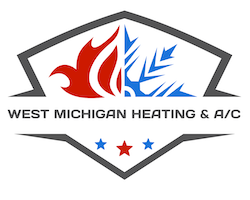
We can all benefit from saving a few bucks where we can. One of the simplest ways to do this is by improving energy efficiency in your home. Upgrading your HVAC system or installing a smart thermostat, for example, provides more control over your HVAC system, leading to a more energy-efficient home and more affordable monthly energy bills.
Read on to learn more about 4 ways you can make energy-efficient home enhancements.
1. Use Smart Home Products Like a Smart Thermostat
If you still use a round-dial thermostat and control it manually, think about taking a step toward the future by installing a smart, or Wi-Fi, thermostat – which contains numerous features to make your home more energy efficient.
The function homeowners appreciate the most is having the capability to control their smart thermostats from anywhere they want through their smartphone or other smart device. As an example, in situations where you forget to change your thermostat before taking a vacation, you can just pull out your smartphone and make the adjustments.
Like a programmable thermostat, a smart thermostat allows you to schedule your home’s temperature based on the time of day and day of the week so you’re not spending energy on an empty house. Smart thermostats also have the capacity to watch your temperature preferences over time and automatically make energy-efficient modifications. They also create monthly energy reports that show how much energy you’re using and when so you can make modifications to reduce costs.
If you’re curious about how to obtain a free smart thermostat, ask your utility company to see if there are any discounts or free smart thermostats offered.
2. Routine HVAC Maintenance
Regrettably, many homeowners often forget to have their heating and cooling systems maintained. While this might not seem like a problem, a lack of maintenance can produce a number of issues, including inefficiency, breakdowns, and a shorter system lifespan.
When performing an HVAC maintenance service, the technician will examine your HVAC system, clean key components, and catch minor flaws before they create bigger, more expensive repair issues. Maintenance keeps HVAC systems running in optimal condition, which means they use less energy to heat and cool your home. This will help with your energy bills, increase the lifespan of HVAC equipment, and contribute to fewer repairs.
We encourage two HVAC tune ups annually – once during the spring before summer and again during the fall before the arrival of cold weather.
3. Getting rid of Your Aging, Inefficient HVAC Equipment
Annoyingly, like all appliances, HVAC systems can't run forever and ultimately need to be replaced. Newer heaters and cooling systems are much more energy efficient than units produced just over a decade ago. Luckily, helpful HVAC companies like West Michigan Heating & Air Conditioning Services can perform professional services like furnace installation in Hudsonville.
Well-maintained furnaces and air conditioners can live about 15-20 years. If the equipment is within that period of time, it might be a good idea to replace them ahead of time to avoid untimely equipment failure that can leave you cold and uncomfortable on a cold winter night. If your system is about 15 years old and has a problem that needs an expensive repair, it’s almost always time to replace it. As reported by the U.S. Department of Energy, installing a new HVAC system can sometimes save you approximately 20-40% on your monthly energy bills, so you’ll recover some of the costs of buying a new system.
A professional HVAC technician can help you identify the most energy efficient HVAC system for your needs. For the most part, try to find HVAC systems that are Energy Star certified, which means the equipment satisfies strict guidelines established by the U.S. Environmental Protection Agency. LENNOX HVAC systems are often some of the most efficient systems on the market, featuring both high AFUE and SEER ratings. AFUE is for heating systems and illustrates how well they convert fuel to heat. SEER, meanwhile, is used to measure the energy efficiency of cooling equipment.
Get in touch with a reputable HVAC provider like West Michigan Heating & Air Conditioning Services for air conditioning installation in Hudsonville.
4. Look for Energy-Efficient Air Filters
The next time you’re searching for new HVAC filters, remember that not all air filters are the same. Certain air filters are far more successful than others, contributing to lower energy bills and a clean home.
The effectiveness of HVAC air filters is illustrated by their Minimum Efficiency Reporting Value, or MERV rating. The MERV scale ranges from 1-20; the higher the number, the more effective the filters are. It’s important to note, however, that high-efficiency air filters can actually obstruct airflow too much according to the type of HVAC system you installed. It’s beneficial to study the owner’s manual before buying a filter to determine the best option for your system.


